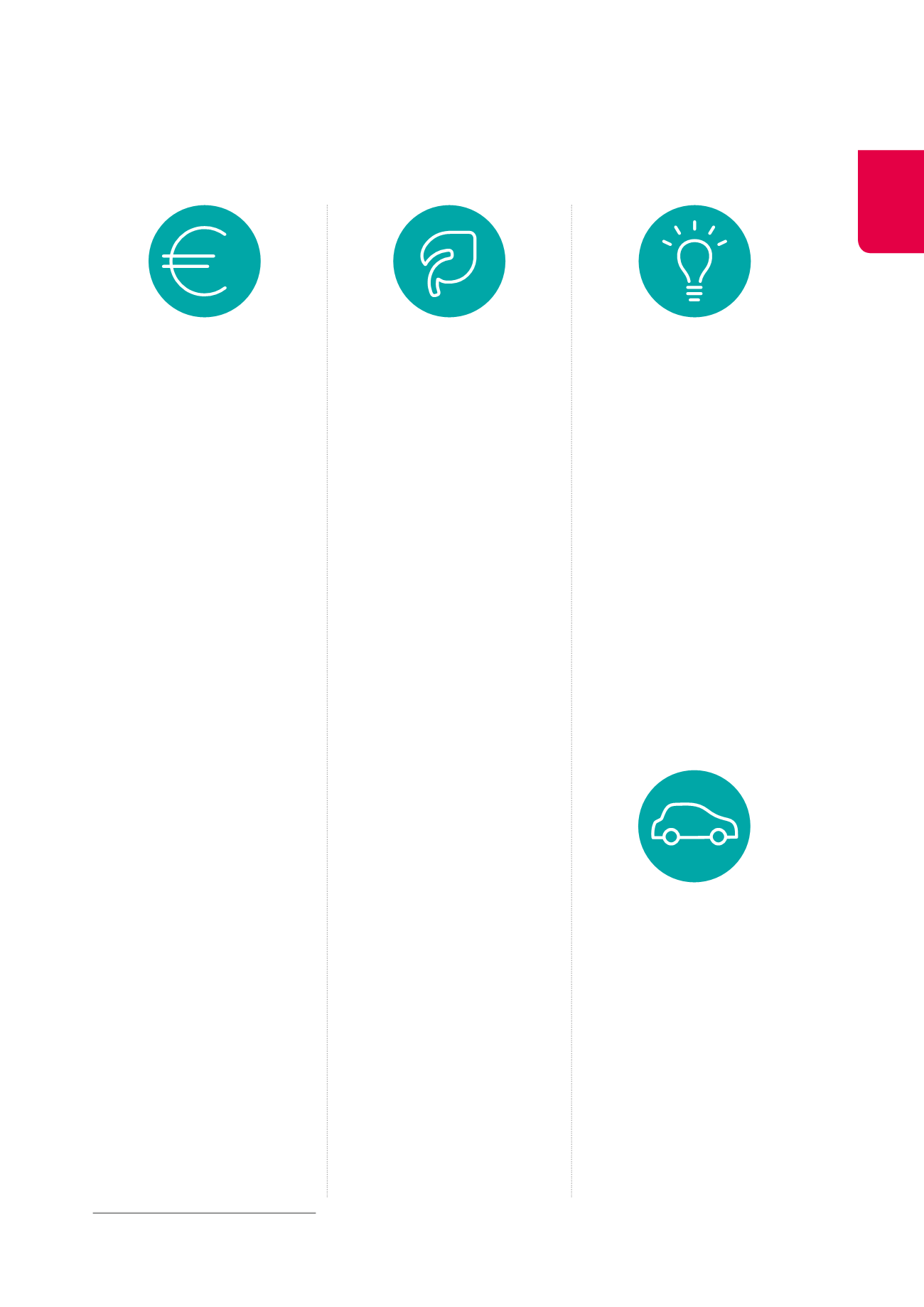

Nine key challenges for the future
Energy consumption
and CO
2
emissions
Buildings must achieve optimal energy
performances to reduce CO
2
emissions
resulting from their use.
ACTIONS 2014:
Cofinimmo strives to go as far as possible
in terms of energy performance, often
exceeding mere legal obligations, within
the limits of the sought-after economic
return. Cofinimmo implemented an energy
accounting software for its office buildings,
for example, and installed meters which can
be read remotely. This approach allowed
the consolidation of the ISO 14001:2004,
BREEAM and BREEAM In-Use certifications.
A collaboration agreement has also been
signed between Cofinimmo, the manage-
ment company Cofinimmo Services and
tenants, in the form of a Green Charter.
Similarly, new maintenance contracts
include incentives to boost energy
consumption savings. Finally, Cofinimmo
published an exhaustive reporting of
performance indicators based on EPRA’s
recommendations
1
.
FUTURE ACTIONS:
Cofinimmo aims to increase its knowledge
of its buildings’ energy performance, grad-
ually incorporating the consumption data
of segments other than offices into the
energy accounting system. The analysis
of these data will result in measures being
taken to reduce energy consumption.
It will also continue to install meters which
can be read remotely at a rythm of +/- 20
buildings per year (horizon 2017).
The update of the company’s carbon
footprint is planned for 2015, as well as
the continued BREEAM In-Use certification
for the office buildings which are being
marketed.
Profitability for
investors and access
to capital
Cofinimmo’s share should contribute to the
prosperity of its shareholders and inves-
tors. This objective includes the distribution
of a high and sustainable dividend and the
preservation of the invested capital.
Cofinimmo must also use sufficiently
diversified financing sources at the lowest
possible cost in order to limit the risks and
to guarantee the company’s sustainability.
ACTIONS 2014:
Cofinimmo has taken steps to ensure the
shares’ liquidity. Several specific cam-
paigns have been carried out to raise the
company’s profile among institutional and
individual investors (roadshows, confer-
ences, etc.).
At least 80% of the current result was
distributed. The Group has also ensured a
healthy distribution of market risks.
Cofinimmo diversified its financing sources
(credit lines, commercial papers, convert-
ible and non-convertible bonds, large and
stable banking pool).
FUTURE ACTIONS:
Cofinimmo will maintain its presence on
the capital and banking markets and will
continue its management of financial
resources as described in this 2014 Annual
Financial Report (pages 70 to 73).
Cofinimmo targets a growing net current
result (excluding IAS 39 impact) per share
and a stable dividend.
Innovation
As a major player in the real estate invest-
ment market and a pioneer of certain real
estate trends in Belgium (in-house property
management since 1999, introduction of
healthcare real estate in its portfolio as
from 2005), Cofinimmo intends to pursue
its innovation policy. This is particu-
larly demonstrated in the renewal and
renovation of its portfolio, as well as in its
management style.
ACTIONS 2014:
Cofinimmo has set up a think tank on the
evolution of the company. Four projects
resulting from this think tank are currently
being validated.
FUTURE ACTIONS:
Cofinimmo hope it can implement the
withheld projects as from 2015. In order to
continue to promote innovation, it will set
up a new working group.
Mobility
Mobility has a direct impact on accessi-
bility and therefore on buildings’ appeal.
Cofinimmo therefore contributes to
mobility in cities through the location of its
buildings, the number of parking spaces
available and the proximity to public means
of transport.
ACTIONS 2014:
Cofinimmo conducted impact studies and
led a dialogue with public bodies in order
to assess and reduce a building’s impact
in the construction and operation phases.
Shared vehicles and parking spaces were
1
The data according to the EPRA principles will be
available on
www.cofinimmo.com/Sustainabledevelopment/Performances & objectives as from
30.04.2015.
79

















